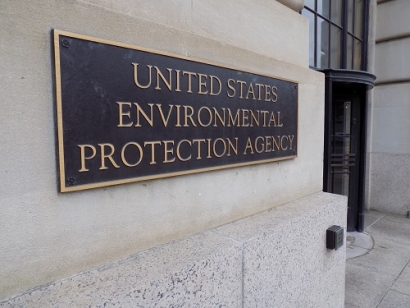
The 10th U.S. Circuit Court of Appeals ruling is a victory for the Ag and Biofuel industry groups that brought the underlying lawsuit, and is expected to broadly impact how the Environmental Protection Agency grants the exemptions in the future.
Writing for a unanimous three-judge panel, U.S. Circuit Judge Mary Beck Briscoe said the federal agency abused its discretion when it granted exemption extensions to three companies that were not granted waivers originally.
The 99-page opinion states the EPA "abused its discretion" by not explaining its conclusion that a small refinery could suffer disproportionate economic hardship while also maintaining refiners passed on Renewable Fuel Standard compliance costs to consumers at the pump.
"The EPA exceeded its statutory authority in granting those petitions because there was nothing for the agency to 'extend,'" Briscoe wrote.
"Further, one of the EPA's reasons for granting the petitions was to address disproportionate economic hardship caused by something other than compliance with the renewable fuels mandate. That, too, was beyond the agency's statutory authority," she said.
With that the panel remanded back to EPA waivers issued to refiners in Wynnewood, Oklahoma; Cheyenne, Wyoming; and Woods Cross, Utah. The Cheyenne and Woods Cross petitions were from 2017, while the Wynnewood petition was in 2018.
This isn't the first time the agency has been in the crosshairs over how it defines the word "hardship" when it grants waivers.
The ethanol industry and others have maintained for years that the waivers were not designed for oil companies that report billions of dollars in profits.
The plaintiffs in this case were the Renewable Fuels Association, the National Corn Growers Association, the American Coalition for Ethanol, and National Farmers Union.
EPA defines small refiners as those producing 75,000 barrels or less per day. Small refiners have successfully petitioned the agency for exemptions by arguing the costs to purchase renewable identification numbers, or RINs, are too high.
Congress provided a temporary exemption for small refiners that could extend beyond 2010, based on a U.S. Department of Energy study or EPA determination of disproportionate economic hardship on a case-by-case basis.
The EPA granted 85 small-refinery exemptions between 2016 and 2018, totaling more than 4 billion ethanol-equivalent gallons not blended with petroleum. The agency currently has 21 exemption requests pending for the 2019 compliance period.
In a statement, the EPA said it had just received the opinion and was reviewing it.
The industry, meanwhile, gave the 10th Circuit a full-throated cheer.
National Farmers Union President Roger Johnson said it came at a critical time for America’s farmers and the biofuels industry .
“Due in large part to EPA’s rampant and ongoing abuse of the SRE program, 2019 was one of the most challenging years in history for the agriculture and biofuel sectors," Johnson said. "We believe this ruling will help restore the ability of the RFS to drive demand and expand markets for renewable fuels, as Congress intended, providing a badly needed shot in the arm for rural America.”
The decision was also welcome news to the National Corn Growers Association and its members.
“Ethanol is an incredibly important value-added market for corn farmers, and EPA’s waivers have reduced RFS volume requirements by more than 4 billion gallons over the past three years, impacting corn demand," said Kevin Ross, the organization's president.
"We are optimistic this decision will finally put an end to the demand destruction caused by waivers and keep the RFS back on track,” he said.
“The Court has affirmed our long-held position that EPA’s recent practices and policies regarding small refinery exemption extensions were completely unlawful," agreed Geoff Cooper, president of the Renewable Fuels Association.
“We are extremely pleased with the 10th Circuit’s decision to vacate the waivers granted by EPA to three refineries owned by CVR Energy and HollyFrontier .And while the decision addresses three specific exemptions, the statutory interpretation issues resolved by the court apply much more broadly," Cooper said.

